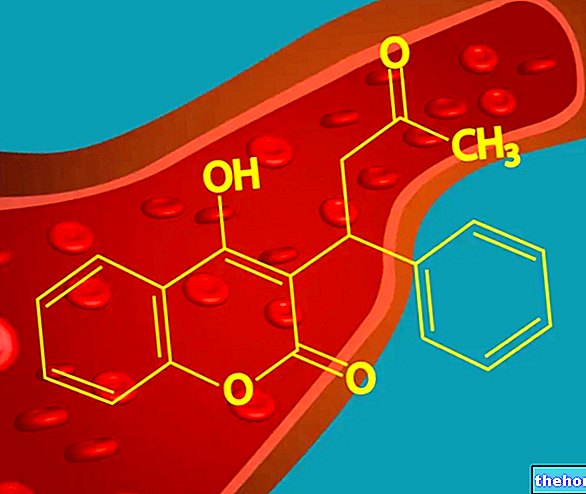Definition
Statistics show that 20% of lung cancers are microcytomas (small cell tumors), and the remaining 80% are tripartite into large cell carcinoma, epidermoid carcinoma and adenocarcinoma. Lung cancer originates in the cells that line the bronchi and, by damaging a vital organ, it is "one of the potentially fatal diseases; in fact" it is the leading cause of cancer death in industrialized countries.
Causes
Lung cancer is closely associated with smoking, both active and passive: according to this, it is understandable that the "abolition of smoking is a" very important rule for preventing lung cancer. This neoplastic form is also heavily influenced by frequent exposure to heavy metals, asbestos and pollution.
- Risk factors: advanced age, genetic predisposition, unbalanced diet, COPD, idiopathic pulmonary fibrosis, male sex.
Symptoms
Lung cancer - unlike pancreatic and kidney cancer which does not begin with any obvious symptoms - gives some signs: constant pain in the chest, coughing blood (blood in the sputum) and chronic cough. less marked symptoms, remember: asthenia, weight decrease, shoulder pain, pain when swallowing, fever, loss of appetite, recurrent pneumonia.
In 6% of cases, lung cancer is asymptomatic.
Information on Lung Cancer - Lung Cancer Treatment Drugs is not intended to replace the direct relationship between health professional and patient. Always consult your doctor and / or specialist before taking Lung Cancer - Lung Cancer Treatment Drugs.
Medicines
The treatment of lung cancer, as is the case for most cancers, is strongly influenced by the extent of the disease (proliferation of diseased cells), by the type of cells affected and by the health conditions of the patient.
The following are the classes of anticancer drugs most used in lung cancer therapy, and some examples of pharmacological specialties; it is up to the doctor to choose the most suitable active ingredient and dosage for the patient, based on the severity of the disease, the state of health of the patient and his response to treatment:
For the treatment of small cell lung cancers (microcytomas), 4-6 cycles of chemotherapy (for the diffuse form of cancer) or the combination of chemotherapy (6 cycles) + radiotherapy are recommended, useful when the tumor is limited to one lung and it is associated with localized lymphadenopathies. Rarely, surgery is needed for small cell tumors.
Platinum derivatives (cisplatin or carboplatin) are the drugs of choice in the treatment of small cell lung cancer. They are often combined with other drugs, such as etoposide.
- Cisplatin (eg Cisplatin ACC, Platamine, Pronto Platamine): for the treatment of lung cancer take a dose of drug ranging from 60 to 100 mg per square meter of body surface on the first day; repeat the administration of the drug every 21 days, in combination with other anticancer drugs.
- Carboplatin (eg. Paraplatin, Carboplatin PFZ, Carboplatin TEVA): in general, the recommended dose varies from 300 to 600 mg per square meter of body extension, to be taken once a day for 4 weeks. Consult your doctor.
- Etoposide (eg Etoposide Teva, Vepesid): the drug should be taken at the initial dose of 35-50 mg per m2, intravenously, to be taken once a day for 4-5 days; alternatively, take 70-100 mg / m2 of the drug orally, once a day for 4-5 days. For the treatment of lung cancer, always take this drug with other chemotherapy drugs (platinum derivatives).
For so-called "non-small cell" lung tumors, surgery is certainly the main surgical option for operable tumors; subsequently, adjuvant chemotherapy is important to give the patient a greater guarantee of having eradicated all the diseased cells. lung cancer was not surgically operable, chemotherapy associated with chest radiotherapy is the most appropriate therapeutic combination. Even in the treatment of non-small cell lung cancer, platinum derivatives are the most suitable drugs; these can be combined with Docetaxel , gemcitabine, topoisomerase inhibitors, paclitaxel and vinorelbine.
- Docetaxel (eg. Docetaxel Teva Pharma, Docetaxel Teva, Docetaxel Winthrop, Taxotere): the drug, belonging to the taxane class, is indicated for the treatment of lung cancer at a dose of 75 mg / m2 intravenously (infusion of one " hour); repeat administration at three-week intervals Take in combination with platinum derivatives.
- Gemcitabine (eg. Gembin, tabin, gemzar): indicated in combination with cisplatin in the first treatment of patients with inoperable lung cancer, in the advanced or metastic stage. The drug can be administered at a dose of 1 gram per square meter (in 30 minutes), on days 1-8-15 of each cycle lasting 4 weeks (28 days). Alternatively, take 1250 mg / m2 intravenously over 30 minutes on days 1-8 of each 21-day cycle.
- Irinotecan (eg Irinotecan ACC, Campto): the drug is a topoisomerase inhibitor, and is sometimes used in lung cancer therapy, although it is not the active ingredient of first choice. In fact, it is often used for the treatment of colorectal cancer. Consult your doctor.
- Topotecan (Topotecan Teva, Topotecan actavis, Potactasol, Hycamtin, Topotecan hospira): the active ingredient is another topoisomerase inhibitor and is taken at a dosage of 1.5 mg / m2 by intravenous infusion of 30 minutes, for 5 consecutive days (repeat the cycle every 21 days, starting to count from the first administration). Typically, 4 courses are required for cancer treatment. The drug is also available in tablets (2.3 mg / m2 per day, for 5 consecutive days; repeat after 21 days).
- Vinorelbine (eg Vinorelbine HSP, Navelbine): take 30 mg / m2 per week (injections lasting 6-10 minutes). It can also be used alone. Alternatively, take 25-30 mg / m2 of Vinorelbine per week combined with cisplatin.
- Paclitaxel (eg Abraxane, Paxene). Belonging to the class of taxanes, the drug - in addition to being widely used in therapy for the treatment of breast and ovarian cancer - should be taken in case of lung cancer at a dosage of 135 mg per square meter of body surface (in 24 hours ), followed by the administration of cisplatin, every 3 weeks.
Other articles on "Lung Cancer - Lung Cancer Treatment Drugs"
- Lung cancer care and treatment
- Lung cancer




























